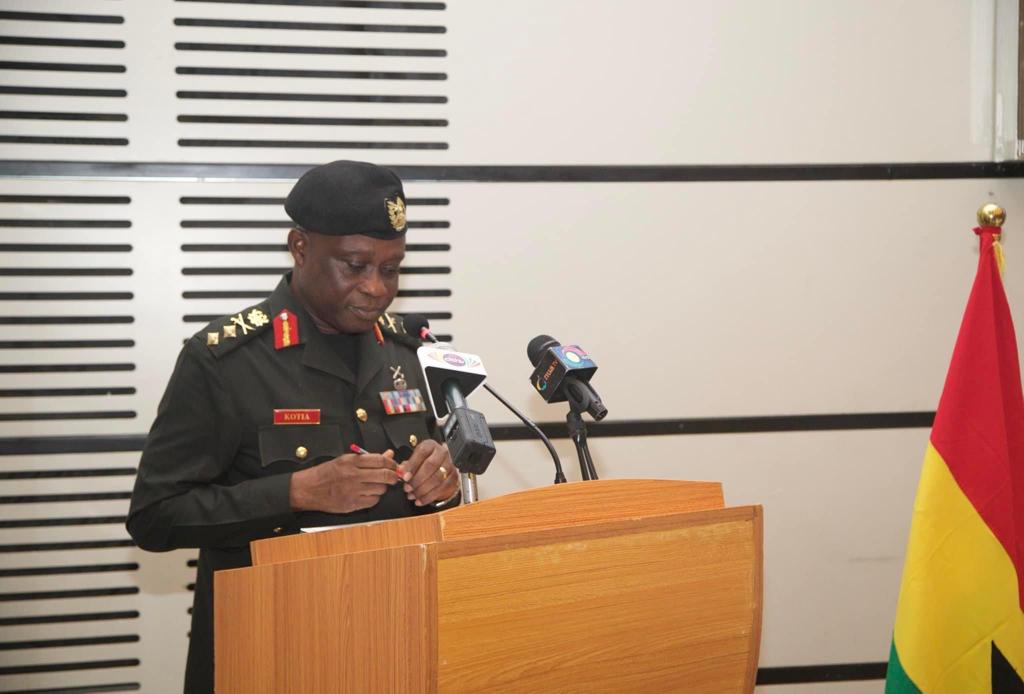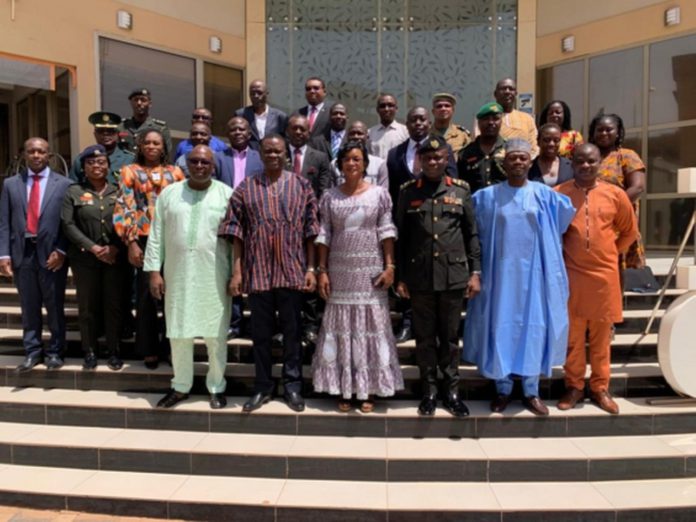The Ghana Boundary Commission and its counterparts in Burkina Faso have started the process to reaffirm the boundary of the two countries by among others restoring deteriorating boundary pillars to their former state.
There are concerns artisanal gold mining activities and other human activities have affected the boundary pillars which were fixed more than 30 years ago. The first meeting between the two countries was in July 2021 at Paga.
Speaking at the opening ceremony of the second meeting of the Boundary Commissions of Ghana and Burkina Faso at Ouagadougou, National Coordinator of the Ghana Boundary Commission, Major General Emmanuel Kotia, said the two countries will begin work as soon as possible.
“We will jointly seek funding for the construction of new boundary pillars including intermediary boundary pillars and border post pillars and a monument at a location that we will agree on around the border crossing,” he explained.

He said “We will use this opportunity to urge GIZ to seek for funding for us to start this project this year. It’s important for us to begin work as soon as possible so our land boundary will not become areas of dispute between border communities.”
Permanent Secretary for the Boundary Commission for Burkina Faso said she was excited about the second meeting of the two countries. Ghana’s Ambassador to Burkina Faso, Adagbila Boniface Gambila said Ghana has a longstanding relationship with Burkina Faso and he is happy to see the second meeting of the two boundary commissions in Ouagadougou.
ALSO READ:
Kan-Dapaah charges Ghana Boundary Commission to tackle Ghana/Togo boundary disputes
Ghana and Togo to demarcate borders
GIZ provided funding for the programme. ECOWAS component Manager, GIZ / African Union Border Programme, Dr Sanou Bakary, said reaffirmation of boundaries of countries is a good way to prevent conflicts between countries.
“GIZ is supporting this programme by bringing in technical and financial support for the reaffirmation process. This programme was established in 2007 as a structural means to prevent conflicts across the African continent.”


